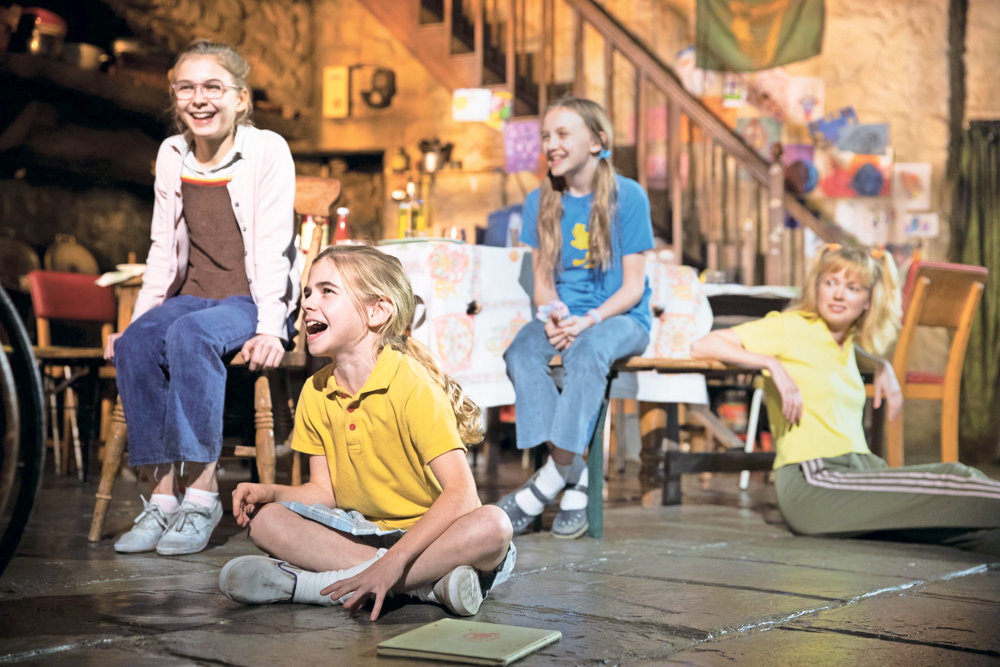Return of the faithful departed in Broadway’s ‘The Ferryman’
Playwright Jez Butterworth tackles the thorny legacies of the 20th century’s Irish-English conflicts in his new play, “The Ferryman,” on Broadway at the Bernard Jacobs Theatre.
One man’s story is his focus. We never meet the man, or see him. He’s vanished, for 10 years.
But in 1981, at the time of the play during the hunger strike of the Republican prisoners in Belfast’s Maze prison, Seamus Carney returns after a fashion.
That’s the kickoff for Butterworth’s ambitious drama, in which we get to know Seamus quite well, thanks to his colorful and passionate relations.
Three generations of the Carney family ramble through Rob Howell’s set, a rural farmhouse festooned with children’s art and rough-hewn detail. Like Howell’s costumes and Peter Mumford’s lighting, the choices fit like an old pair of brogans. They set the tone, and then get out of the way for an abundance of vivid characters and terrific acting.
Director Sam Mendes steers this epic material along on an efficient and measured path, and the results illuminate the dark choices and lingering generational effects of both the national conflict and one family’s encounter with “the Troubles.”
Along its intricate way, “The Ferryman” overflows with Irish brio. Song, talk, dance, drink, faith, poetry, fighting, myth, struggle and perseverance all get their due, as does grace and cutting wit.
With 22 characters to manage, Butterworth lets his story unfurl gradually as the missing man’s brother, Quinn Carney (Paddy Considine), leads the clan through the traditional labors and celebrations of the annual harvest.
But shadows of death and unease stalk this family’s moment of joy, and Butterworth underscores the impact of the mystery through the viewpoints of the three Carney generations.
The youngsters have an innocent take on their vanished uncle, one the teenagers burnish with their increasing awareness of the facts. The adults are the walking wounded, and the elders serve up folklore, poetry and dread, plus a hefty dose of political reality.
The long struggle for Irish freedom is woven into the action. These characters live with an acute sense of history, because history is being made right outside the cottage door.
A priest, like the family itself, is faced with the unpleasant challenge of compromise, along with the threats imposed by a violent faction of the IRA.
“The Ferryman” is generous in its depiction of the contrasts and price tags of a call to arms.
The build-up to the inevitable direct conflict between the forces, which Butterworth carefully sets in motion, is tarnished a wee bit by some internal inconsistencies, and a seeming parallel with one of John Steinbeck’s great characters. This can be understood, given the inevitable overgrowth of 10 years of mystery, and the fact that the Steinbeck parallel has a mesmerizing power all its own.
This ensemble is a triumphant celebration of character. The children are delightful, the youth bursting, the adults sympathetic and true, the geezers alternately cryptic and effusive — and all are paced by the turn of the seasons, and by the spirits that walk the land.






